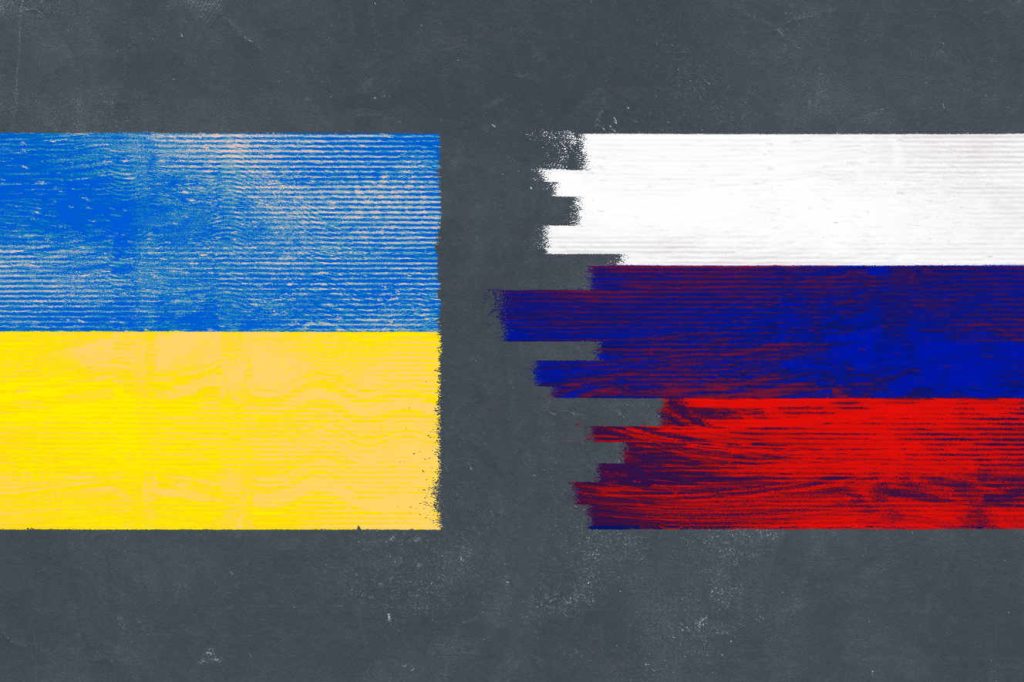As in Crimea and the Donbas in 2014, Russia is forcing some Ukrainian regions to connect to its internet network. It signifies yet another way Russia is trying to establish its sovereignty over the occupied areas.
In the war in Ukraine, the battle is also played around the internet infrastructure
BY:
Catherine Nicci
Legal Affairs Analyst / Reporter
PROJECT COUNSEL MEDIA
2 August 2022 – Kherson, a large city in southern Ukraine, has been under the control of the Russian army since March 3. But since April 30, another form of occupation has been added to that of Russian soldiers roaming the streets: a sudden cut in internet traffic before returning to normal the following day. In the meantime, Khersontelecom, the main Internet Service Provider (ISP) in the region, was replaced by Miranda-Media, an operator from Crimea, a territory annexed by Russia in 2014.
In Kherson, just days after reconnecting via Miranda-Media, the Ukrainian authorities announced that they had regained control of the network and that traffic was once again being managed by the original Ukrainian ISP, Khersontelecom.
This did little to discourage the occupiers. Another operator in the region, Status, was forced to route its traffic through Russia. Consequently, it has been reported that since May 13, the city has effectively been connected to the Russian network. At present, the Kherson case is the best documented: The strategy of network manipulation consists of “creating dependence” and ensuring “control of information,” according to Louis Pétiniaud, a Ph.D. in geopolitics and a researcher at the Géode center, a research and training center devoted to the strategic and geopolitical issues of cyberspace.
Other cities are expected to suffer the same fate. Spying and censorship are the main goals of internet control. For example, to curb the anti-war protests and rallies that took place in major Russian cities, Russia banned access to Facebook, Instagram and Twitter by pressuring its ISPs when the war in Ukraine began.
Connect and rule
It is so easy to manipulate the network, because “the protocol that allows the routing of data is not at all secure,” explained Frédérick Douzet, director of GEODE, teacher-researcher at the French Institute of Geopolitics and a specialist in geopolitical issues of cyberspace and the United States. Thus, in order to transit between users, data passes through the cables that physically link countries. Cutting a cable means significantly altering the access to the global internet of one or several states.
Beyond the question of cables, there is the question of how the machines communicate using the autonomous systems that form the network of the world wide web. These are established by their administrators, who determine “their routing policies according to economic, technical and/or political considerations,” explained Mr. Douzet. In a war, they are also established under the coercion of the enemy.
The vote in the referendum in favor of Crimea’s integration into Russia (not recognized by the international community on March 16, 2014) had thus already caused a reorganization of internet traffic in the region. As Mr. Pétiniaud explained, Moscow quickly “deployed physical cables” to the Crimean peninsula. The Kremlin also proceeded to reroute data by setting up various commercial agreements between Russian and Ukrainian network administrators, so as to pass data through the Russian network before it reached its final destination. In the Donbas, which has also gradually broken away from Ukraine to get closer to its Russian neighbor, the occupier was also able to count on the presence of pro-Russian separatists who made the task easier.
Initially, the Ukrainian government cut off communications with the separatist territories, with the aim of preventing information leaks and attempts to interfere which would benefit the Russians. “We now see a reverse trend, the Ukrainian government is doing everything to keep the occupied areas connected to its network,” said the specialist in Ukraine and cyberspace, Mr. Pétiniaud. The Ukrainian authorities, who are putting up strong resistance to the Russian invasion, feel it is essential to control the data that passes through their territory. Not only to avoid completely isolating the population but above all to assert sovereignty even in areas occupied since the beginning of the war.
New weapon of war
Russia’s network strategy is clear: Controlling the internet in Ukraine means muzzling and monitoring the population. Without even waiting for the fighting on the Ukrainian front to end, the Russian army has thus rushed to attack the communications infrastructure and install others, particularly not far from Mariupol, a city in the southwest that has been almost completely destroyed by bombing. Elsewhere in the occupied territories, in Melitopol, the Russian-language press announced on March 20 that the city has been connected via a new Russian ISP, with the direct consequence of restricting access to Facebook.
In this war, which is now a hybrid one, cyberspace has also become a territory to be conquered. Nevertheless, not all countries can implement such a strategy, because it requires “personnel with solid computer skills,” stressed Mr. Pétiniaud. Russia is seeking to develop its ability to cut itself off from the global internet in the same way as Iran did in 2019, “thanks to the restructuring of its connectivity architecture,” said Mr. Douzet. According to him, the war in Ukraine “further strains relations in multilateral discussions” about the “security and stability of cyberspace.”
Kherson, Mariupol, Melitopol and Zaporijia: By trying to connect these occupied territories, Russia is not in the process of occupation, but of integration. The internet is just one cog in this process. Giving passports to Ukrainians, broadcasting national television channels and imposing the ruble for trade are also part of a process aimed at legitimizing the Russian presence in Ukraine.
